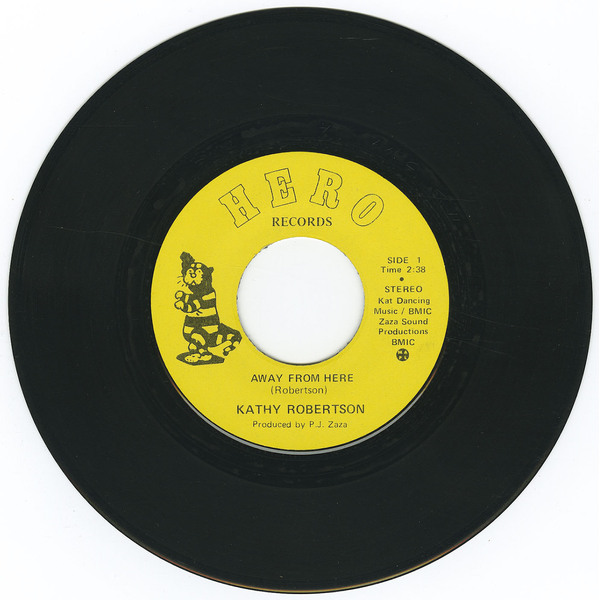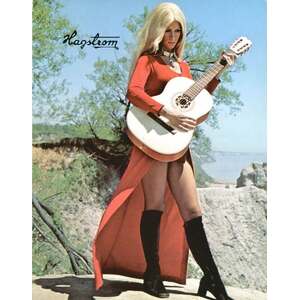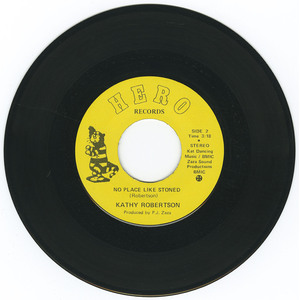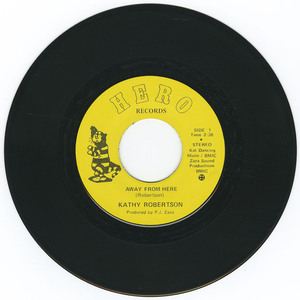Information/Write-up
Kari Robertson (formerly known as Kathy Robertson) is a Scottish-born Canadian folk singer-songwriter whose career blossomed in the vibrant folk club circuit of 1970s Toronto. Born in Scotland and raised in Toronto from infancy, Robertson began performing at age 14 in the city’s coffeehouses, honing her craft with a distinctive lyrical voice and a love for acoustic storytelling.
In 1972, she released a self-penned 45 on her own Hero Records label, recorded at ZaZa Sound Studios in Toronto. The single—featuring two original songs—found unexpected success, even topping local charts in smaller markets such as Corner Brook, Newfoundland. It stands today as a knockout slice of Canadian psych-soul, showcasing her powerful vocals with a Joni Mitchell–like vibe—an obscure but remarkable find in the landscape of early 1970s independent Canadian music.
That same year, Robertson became an unlikely visual icon when she was featured on the cover of the Hagstrom Guitar Catalogue. The photo, shot at Scarborough Bluffs, was arranged after a Hagstrom representative happened to see her perform at The Moorings Lounge in Toronto. Touring Alberta at the time, she had bought the guitar out of necessity—her original six-string had warped in -40°C weather, and the only available replacement was a 12-string Hagstrom.
Her image as the “Hagstrom Girl” soon became part of Canadian pop culture lore. For years, few knew her identity, as she had later changed her performing name and eventually stepped back from the music scene. Decades later, her picture resurfaced with cult status when she was profiled by Kim Mitchell on Guitar Picks, finally reconnecting the catalogue’s mystery figure with her folk career.
Following the release of her single, Robertson toured in the UK with established country acts and continued performing under her new name, Kari Robertson. In the early 1990s, she recorded a second project—issued on cassette and CD—that she shared mainly with local radio stations. While her recording output was modest, her voice and songs carried a distinctive presence, reflecting her early influences of Joan Baez, Judy Collins, and Nancy Ames while ultimately shaping a style uniquely her own.
Her story was first documented on citizenfreak.com in November 2011, and in June 2025 Kari herself reached out to help fill in missing pieces of her history—closing the loop on a tale that had lived half in obscurity and half in legend. Though her recorded legacy is limited, Robertson’s songs, story, and enduring image capture a singular moment in Canadian independent music, rooted in resilience, travel, and artistic independence.
-Robert Williston
Written by Kari Robertson
Produced by Paul Zaza




No Comments